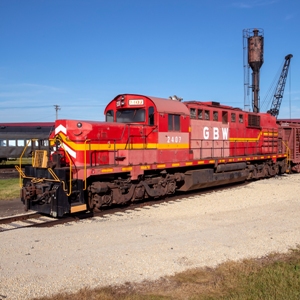

That is not a particularly relaxing way to travel either, and was made less so in those days by hot cinders from the engine, particularly if the train went through any tunnels. On my first trip, my friend and I traveled the first leg on top of a boxcar.The Kid from Hoboken (1993) by Bill Bailey.I heard one comment quietly, "It's hard to teach these young kids anything nowadays. Then the most that can happen to you is you roll a bit." He went back and sat down with the other two. "Suppose the train comes to a sudden stop? Or humps some cars in the middle of the night? Your head would be bashing up against these walls like a yo-yo. "Why, you can get your brains bashed out, lying like that!" he said. One of the more experienced travelers promptly chided me for being so amateurish. Then I lay down with my head against the bulkhead. Three such veterans were in the car with me. Fortunate indeed is the man who can ride with a few old timers. They exact a heavy toll in injuries and deaths. When the wind howls, you can always close the door a wee bit more to keep out the gusts and the cold.įor a novice, danger lurks in and around freight trains. When it rains, there's a roof over your head. Through the wide open door you can watch the countryside go by you can smell the country air mingled with the odor of sulfur, as the fireman piles more soft coal onto the fire.


You can get up and walk around or even trot. There's a lot to be said about traveling in a boxcar, especially an empty one. Then two long toots of the engine whistle let us know the train was going to "highball" run wide open. We scrambled aboard any open car we could catch.
Freight hopping tickey full#
A freight train rumbled slowly toward us, its stack belching black smoke as the fireman worked up a full head of steam. A mile outside Waycross, I and a handful of others heading west waited.Between jobs we would sleep in haystacks or near-by boxcars. Throughout the entire trip we were compelled by poverty to steal rides on freight cars.Bound for Glory (1943) by Woody Guthrie.I guess ten or fifteen of us guys was singing: About all I could hear above the raving and cussing and the roar of the car was the jingle and clink on the under side every time the wheels went over a rail joint. The wheels were clipping it off at sixty miles an hour. Our car was a rough rider, called by hoboes a "flat wheeler." I was riding in the tail end where I got more dust, but less heat. The train was a highball and had the right of way. Others was too weak, too sick, too hungry or too drunk even to stand up. Part of us waved our hands in the cloud of dust and hollered out to the whole crowd. Hot in the September heat, tired, mean and mad, cussing and sweating, raving and preaching. We looked like a gang of lost corpses heading back to the boneyard. My mouth was full of some kind of gray mineral dust that was about an inch deep all over the floor. I could smell the sour and bitter sweat soaking through my own khaki shirt and britches, and the work clothes, overhauls and saggy, dirty suits of the other guys. I could see men of all colors bouncing along in the boxcar.Pages From a Worker's Life (1939) by William Z.The latter exposed themselves to disaster especially in their frantic efforts to hide from trainmen and bulls. But green hoboes, "gay cats," walked into these dangers blindly and were mowed down in the hundreds. Broken bodies of hoboes were constantly picked up along the railroad right-of-way, and hurried off to nameless graves in local Potters' Fields.Įxperienced hoboes, wise to the ways of the road, like veteran soldiers in war, were able to shield themselves somewhat form the thickly-strewn hazards. The hobo might dash his brains out or be cut to pieces while jumping on or off a rapidly moving train he might fall from the top of a swaying box-car or be swept off by a low bridge of whose presence he was unaware he might have his head torn off by a car or railroad structure that was not "in the clear" he might be crushed between telescoping cars or mangled in wrecks. Death laid in wait for him at every turn. Besides hunger and cold, the hobo was confronted with a maze of perils. Railroading in those years was very dangerous for train and engine crews, but incomparably more so for hoboes.Freighthopping is the practice of illegally riding freight trains.


 0 kommentar(er)
0 kommentar(er)
